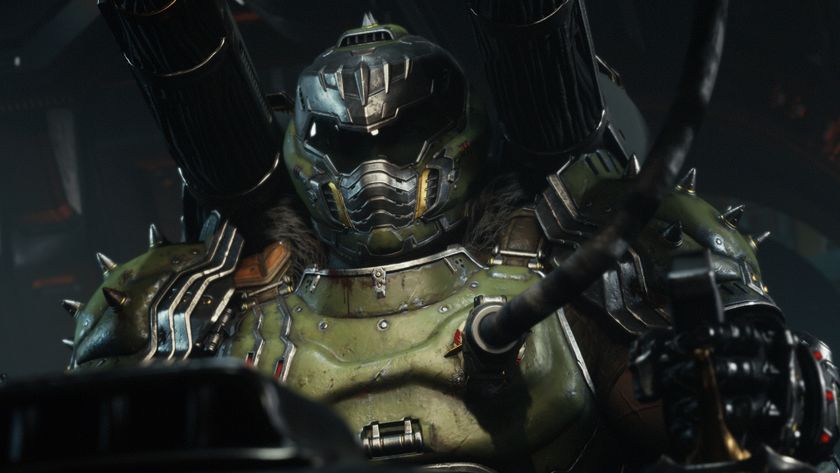Wanting an even playing field in your online lobbies isn't a skill issue
Opinion | It's pretty simple – skill-based matchmaking improves first-person shooters for most players

Chances are, if you keep up with the online chatter surrounding popular first-person shooters, you're already well-versed in the seemingly endless squabble about skill-based matchmaking. An algorithm that groups players of a similar skill level together for more balanced matches, a game delivering a fairer experience for everyone shouldn't be a controversial topic.
Yet this is easily the one feature that big content creators and angry forum users seem to complain about the most. I've put over 300 hours into Call of Duty: Modern Warfare 2 and I think that it’s time to stop moaning about skill-based matchmaking.
Highlight reel


This feature first appeared in PLAY magazine - Subscribe here to save on the cover price, get exclusive covers, and have it delivered to your door or device every month.
To those outside the FPS bubble, it might seem like a strange thing to be upset about, especially when you consider that skill-based matchmaking (or 'SBMM' for us FPS-heads) is an excellent idea on paper. Getting home late from a long day at work, the last thing you would want to do is sit down for a relaxing round of Modern Warfare 2 only to be dropped into an unrelenting meat-grinder of a lobby where you're repeatedly eviscerated by the same one or two sweaty teens hopped-up on Monster Energy and an aversion to the outside world.
If you only have a few hours spare to play whichever shooter you favor each week, facing off against players with a similar level of practice is a good way to ensure that you're all going to have the most enjoyable possible experience. When the biggest Triple-A shooter series, the likes Battlefield and Call Of Duty, live and die by their huge casual audiences – a vast swathe of users who would quietly move on to other things if the experience was to become too frustrating – SBMM is a necessary part of maintaining a healthy playerbase.
It's not just a feature that exists wholly in service of the casual players, however, as more hardcore ones also benefit from more rigorous competition. Getting a 50:1 kill/death ratio in every match might feel like a refreshing power trip for the first few hours, especially when you're just trying to plough your way through the latest battle pass, but easy win after easy win without any real incentive to invest the time required to hone your skills is a sure-fire recipe for boredom.

"If you went to support your local football team only to see them battered in a 30-nil loss against Real Madrid, you would probably have some choice words to say about the fairness of the match."
It's no coincidence that the system's most vocal detractors are almost invariably content creators – or legions of their devoted fans who uncritically regurgitate the same views. Their primary argument is that there's something inherently unfair about grouping skilled players in matches with other skilled players, but this is quite clearly completely ridiculous.
If you went to support your local football team only to see them battered in a 30-nil loss against Real Madrid, you would probably have some choice words to say about the fairness of the match. Without something to ensure a reasonably level playing field, YouTubers, streamers, and TikTok reel makers would thrive on an endless supply of flashy gameplay clips, something that becomes incredibly easy to create when you're playing against people who have only just installed the game.
Sign up to the 12DOVE Newsletter
Weekly digests, tales from the communities you love, and more
There's a clear profit motive to make things as unfair as possible here and, while the removal of SBMM would certainly make the lives of this small minority easier, it's an incredibly short-sighted mission.
This feature first appeared in PLAY magazine - Subscribe here to save on the cover price, get exclusive covers, and have it delivered to your door or device every month.

Techradar's Dash knows how to ask the hard questions, like "which is better, Knack or Balan Wonderworld?" When he's not playing mediocre mascot platformers or being the sole remaining Babylon's Fall player, he can be found blasting away in the likes of Call of Duty, Overwatch 2, or, controversially for this PLAY Magazine alumni, Valorant.











